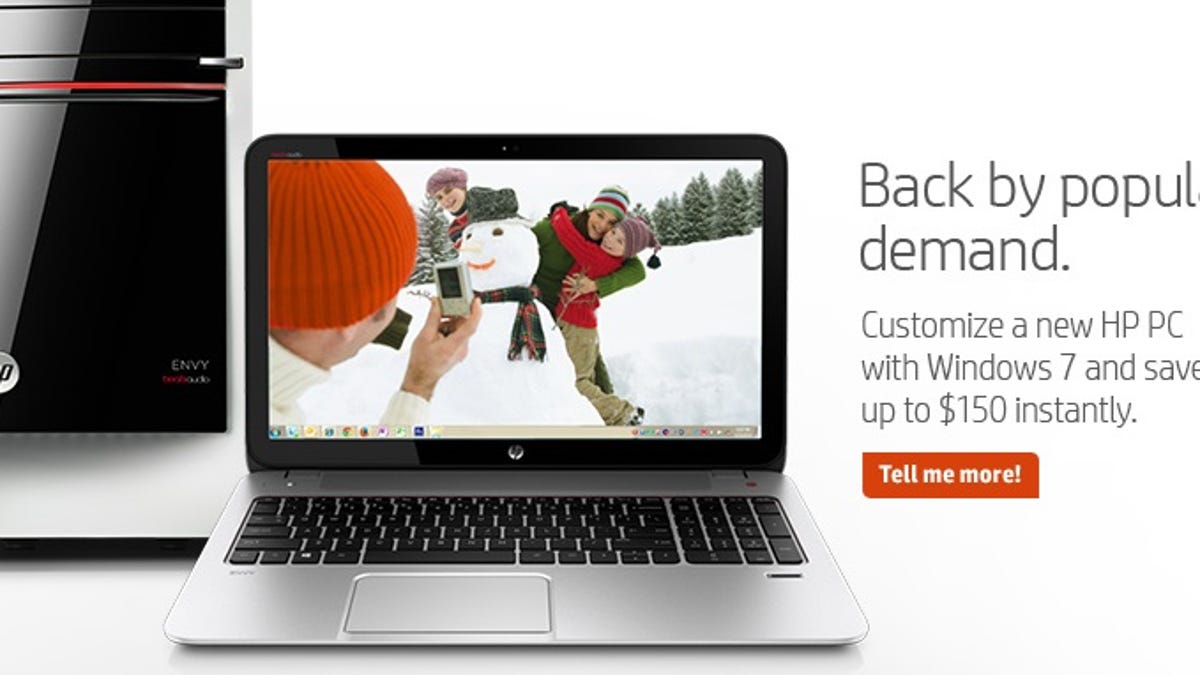HP resurrects Windows 7 PCs 'by popular demand'
Computer maker touts Microsoft's older operating system as an incentive to buyers of its desktop and laptop PCs.

Windows 8.1 isn't getting a lot of love from Hewlett-Packard.
The computer maker has begun offering a handful of desktop and laptop PCs running Windows 7, touting the older operating system as "back by popular demand." To spur sales, HP is also offering the Core i5- and i7-powered machines at a $150 discount.
As pointed out by Neowin, the home section of HP's retail Web site also offers Windows 8.1 machines for sale, but the focus of the page is definitely machines running Microsoft's 4-year-old operating system.
Although Windows 8.1 has managed to grab a healthy number of users since its debut last October, the promotion is apparently catering to the majority of Windows users who prefer the older operating system. While Windows 8.1 has snagged 3.6 percent of the desktop operating system market in three months, it still trails Windows 7 and Windows XP wide a margin. Windows 7 was still used by 47.5 percent of all desktop PCs, according to Web tracker Net Applications in December. Windows XP, the 12-year-old OS that Microsoft will stop supporting in April, is still used by 29.9 percent of desktops, nearly three times the combined market share of Windows 8 and 8.1, according to Net Applications.
Compounding consumers' apparent aversion to immediately upgrade to the latest Windows OS, Microsoft is expected to release a major Windows overhaul next year. The software giant is said to leaning toward naming the new release Windows 9 to distance and differentiate it from Windows 8.

